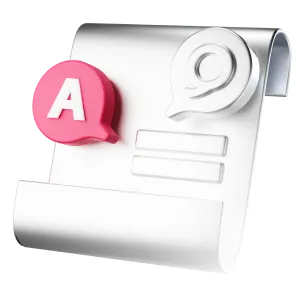How much does it cost to rotate tires?
The cost of a tire rotation can be as much as $150, but some shops will also include the rotation for free if you buy another service. For example, Discount Tire offers free rotations for life if you buy a set of tires from them, while Pep Boys offers free rotations with any scheduled service. But if you take it to a mechanic who’ll inspect your lug nuts for wear and tear, you may be charged over $100.
Costs may be higher for luxury vehicles or sports cars, or if your car has oversized tires or specialty rims. Tires specifically designed for off-roading or winter use might also have a higher cost for rotation.
How did we estimate these prices?
Jerry’s experts researched and collected data from 2500+ real repair shops in all 50 states in the US, including everything from the total cost of repair services to the hourly labor cost for mechanic labor in each shop. We combined that data with our expert database of hundreds of real repair jobs, thousands of real cars, millions of real car part prices in order to best estimate the cost of each repair service. Our labor cost estimate is calculated by taking the average hourly labor rate for a certified mechanic in the US, times the number of hours it takes on average to complete a repair. We recommend you compare your local shops with Jerry and contact those shops directly to get final pricing for your vehicle.
What is a tire rotation?
Rotating tires means moving them into different positions on the car to help them wear down evenly and last as long as possible.
Tires wear down differently depending on where they are positioned. On a front-wheel drive vehicle, for example, the front tires wear out faster because they bear the brunt of turning, accelerating, and braking.
Keeping tread depth the same across all of your tires can help with traction and handling. If you don’t rotate your tires, they will wear down unevenly, and extremely worn-down tires can rupture—potentially causing a dangerous accident while you’re driving. Also, you may be required to rotate your tires at certain intervals to keep them covered under warranty.
Tires are typically rotated in a certain pattern based on the make and model of your car and the type of tire used. Those patterns usually include:
- Front-wheel drive vehicles: Forward cross pattern. Tires on the front axle move directly back on the same side, while the rear tires move up to the front axle and cross over diagonally.
- Rear-wheel drive vehicles: Rearward cross pattern. Rear tires move directly up to the front axle on the same side, but the front tires cross over to opposite sides in the rear axle.
- Four-wheel drive or all-wheel drive: X pattern. All tires are moved diagonally—from one axle to the other, and from one side to the other.
- Directional tires (tires designed to rotate in one direction): Front- to-back pattern: The front and rear tires swap places and stay on the same side of the vehicle.
- High-performance tires: Side-to-side pattern. The two rear tires switch to opposite sides but stay on the same axle, as do the two front tires.
How often should I rotate tires?
Tires should typically be rotated every 5,000 to 7,500 miles, but refer to your owner’s manual to confirm the recommendations for your specific vehicle.
If you notice any of the following issues regardless of mileage, you should get your tires checked out:
- Uneven Tread: You may see more wear or balding on one tire, or one part of a tire.
- Vibration: Your steering wheel begins to vibrate or shake.
- Reduced Fuel Efficiency: If your car seems to be using more gas than usual, it could be due to resistance from uneven tire wear.
- Pressure Loss: Low pressure on a tire can indicate uneven wear and a need for a rotation.
Many people get their tires rotated when they get their oil changed as part of their car’s regular maintenance. It’s a good idea to also visually inspect your tires, check their air pressure, and possibly have them rebalanced—which involves small metal weights being added to equalize weight distribution in your wheel. This might be needed if you leave your car parked for extended periods or consistently drive over rough roads and potholes.
Well-rotated tires should have a lifespan of 30,000 to 40,000 miles.
Can I rotate tires myself?
If you have a safe space to do the work and some basic mechanical knowledge, you should be able to rotate tires yourself. You’ll just need proper tools such as a jack, lug wrench, and tire pressure gauge.
FAQ
-
Is a tire rotation the same as an alignment?
-
Do tires wear faster if not rotated?
-
What happens if I haven’t rotated my tires in a year?

Deirdra Funcheon is a journalist with a master`s degree from Boston University and more than 20 years of experience covering a broad range of topics. She has worked at Univision (on the investigative team at Fusion), Axios (where she covered Miami-area news) and Bisnow (covering the commercial real estate industry). At Jerry, she aims to empower drivers with knowledge about how their vehicles work and how best to handle repairs, insurance and other complications of car ownership.

Everett Cook is an award-winning journalist and editor with more than 10 years of experience across a variety of industries. In editing for Jerry, Everett’s mission is to help readers have a better understanding of the costs of owning or leasing a car and to better understand their vehicle in terms of insurance and repairs. Prior to joining Jerry, Everett was an editor for Axios. His previous work has been featured in The New York Times, The Los Angeles Times, The San Francisco Chronicle, The Atlantic, Atlantic Re:think, The Boston Globe, USA Today, and others. He’s also been a freelance writer and editor with experience in SEO, audience building, and long-term content roadmaps. Everett is a proud graduate of the University of Michigan.








